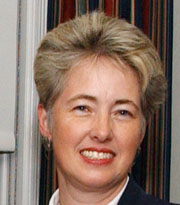InsideOut At City Hall: Well, Isn’t That Special?
A controversial City Council election to replace Sekula-Gibbs looms in May
Keep your voter-registration cards handy. The city has scheduled a special election for May 12. This one may be a little more special than others because the mayor and most City Council members wanted to save the estimated $3 million cost of an election and probable runoff and postpone, until the regular November city election, filling the vacancy created by Council member Shelley Sekula-Gibb’s resignation and run for Congress.
The city could certainly use the $3 million. And what’s a few more months with one less at-large Council member? After all, there are four others, and everyone has a district Council member. Special elections normally attract less than 10 percent of voters. Why spend the money?
Why indeed. The mayor was set to lobby the state legislature to change the rules so Houston could forgo the special election and wait until November, but he received a chilly reception from local legislators.
State law goes into great detail about elections and vacancies. Council members, and controllers, do occasionally resign. And with all the referendums, Houston voters must be accustomed to special elections. No matter how much an election costs–especially an at-large City Council election for the whole city–I’d rather pay the millions in election costs than pay the price of changing good rules in the heat of battle and risk setting a dangerous precedent. If we cancel one election due to cost, why not cancel others for the same reason? Next we might be tempted to cancel an election because the likely winner is someone we don’t want to see in office. Democracy shouldn’t have a price tag or play favorites.
Years ago, vacancies on City Council were filled by appointment. It was felt that an open election was a better choice, and now we must have an election if 270 days remain in the vacant term. Of note is the fact that a quirk in state law actually excludes the Houston city controller’s position from this requirement. That’s the reason Council appointed a person to serve as controller when Sylvia Garcia was elected a county commissioner.
How Special
Special elections present a great opportunity for relatively unknown candidates with voting blocs behind them to get elected or make a real dent in the political process. When few people pay attention, a small cadre of passionate supporters can turn an election. In 1994, Council member Sheila Jackson Lee was elected to Congress (for a full two-year term!) and resigned her council seat. In January 1995, I ran in a special at-large Council election to fill that vacancy and finished third of 19 candidates. My opponent who ultimately won that election resigned in the face of ethics complaints two years later, prompting another special election. Chris Bell won that special election.
Even though I lost the 1995 race, my showing in that special election made it much easier to win the money and endorsements necessary to win my at-large council seat in 1997.
Annise Parker is the second-term city controller and the highest-ranking openly GLBT elected municipal official in any of the 10 largest U.S. cities. Her website is www.houstoncontroller.org. Parker’s television program, Money Matters, airs Monday on the Municipal Channel (Time Warner Cable 16) at 2 and 8 a.m. and 2 and 8 p.m.
ONE OF OUR OWN
Noel Freeman, president of Log Cabin Republicans Houston, is one of the announced candidates for the May 12 City Council special election. We selected Freeman for our 2007 People To Watch list in this issue.












Comments